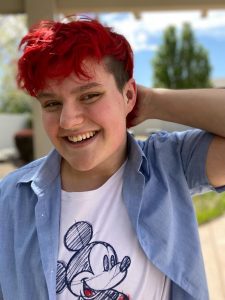Kate Baer’s ‘What Kind of Woman’ is a Poetic Revolution for Motherhood
April 27, 2021
Kate Baer’s debut poetry collection “What Kind of Woman” was released in November 2020 to the delight of poets, readers and those who identify with labels such as “mother” and “woman.” However, Baer’s unflinching approach to depicting her experience speaks to the universal truth that to be a mother sometimes means to become only a mother or too little of a mother in the eyes of modern society. Baer defies this label in favor of something entirely different — the idea of motherhood as a poetic experience that is necessary to discuss and understand.
What Kind of Poet
Baer’s poetry is modern, unique and moving. She is dynamic and honest, unafraid to freeze time and linger in moments that are often good, bad and lovely all at once. Her debut collection details the reflections of young lovers and queerness, the difficulties of marriage and the longing for the status of something beyond just the title of “mother.”
“I was surprised that so many people would embrace poetry; I was not surprised at the collective anger or grief over the weight of motherhood,” Baer said in an interview with Sara Petersen for Romper. “All of us want to feel seen in our experiences, and telling the truth about what is happening structurally lends itself to a giant ‘me too.’ I live for the gritty and unfiltered realities of what is actually going on behind the scenes, in motherhood and otherwise.”
Through her poetry, Baer is providing a space for women and mothers to be heard and share their own experiences of what it means to harbor these identities.
In “Etymology of the Word Wife,” the poet traces the meaning of a title ascribed to married women from an Old English word meaning “shame” to a fifteenth-century term for “private property.”
In “What Kind of Man,” Baer explores what it means to be raised with gentleness by a father, and the dynamic created between father and daughter when kindness and understanding are given space to grow.
A Necessary Voice
This collection spoke to me from an honest and vulnerable place. I thank Baer for her words and her kindness, for her affirmations against the idea of what women should be — in favor of her focus on what women could become.
I find myself returning to the carnal and resolute sensuality of “Ode to My Desire” which still strikes me despite having read it five times now. To hear queerness and desire explored by women so starkly is poetic in itself but Baer turns it into a hymn. I return as well to “Moon Song” for its advocacy for the duality of women and their capacity to exist within the image of sun and moon, mother and lover.
We need more poets like Baer — more voices to redefine and break away from the confines of what it means to be a woman in a society that is changing every day.








